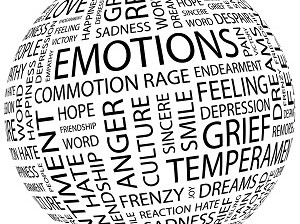Category Archives: Science
29 Mar Is Anything True or False

I like to use pictures in my posts. The more evocative they are, the better. Why? Because they may trigger brain activity in areas that may be otherwise untouched by my writing. In other posts, I speak of this brain activity as “patterns of activation” (Understanding, Vision, Enchanted, Flow). If we think in patterns (Tou 1974), […]
28 Mar Is Everything Black or White?

We have exercised our abstract ideas about that which is too big and chaotic for us to understand (everything), let’s take a glimpse at that which is so small and chaotic that we may never really figure it out: the workings of the mind. In the next few posts, we will examine different forms of logical […]
27 Mar Cognition and Emotion

I’m conflicted. I suspect you are too. “Since the time of the ancient Greeks, humans have found it compelling to segregate reason from passion, thinking from feeling, cognition from emotion. These contrasting aspects… have in fact often been viewed as waging an inner battle for control of the human psyche” (LeDoux, 1996, p. 24). In earlier […]
26 Mar Bayes and Search Theory

What began as a study of belief has turned into a strategy for solving very complex problems. Thomas Bayes (/ˈbeɪz/; 1701–1761) proposed a model in which adding evidence of different types, or from different sources, to a problem will change the calculated probabilities for the outcomes of the “reasoning” process. We’ve forgotten what he looked like, […]
25 Mar Generalization and Inference

What do you do when you encounter something completely new, such as a new flavor. Can you identify that it is a flavor and that it resembles some flavors you’ve encountered before? If you knew about bridges from experience, but had never seen a drawbridge, or a lift bridge or a covered bridge, would you be able […]
22 Mar Common Sense and Thresholds

Finding Thresholds Threshold conditions are boundaries between states, and they exist everywhere, affecting everything. From a computational perspective, thresholds are a valuable tool for limiting the problem space to within manageable limits. In other words, knowing where the edges are can help us computationally color inside the lines. How could we determine a threshold? Observing, […]







